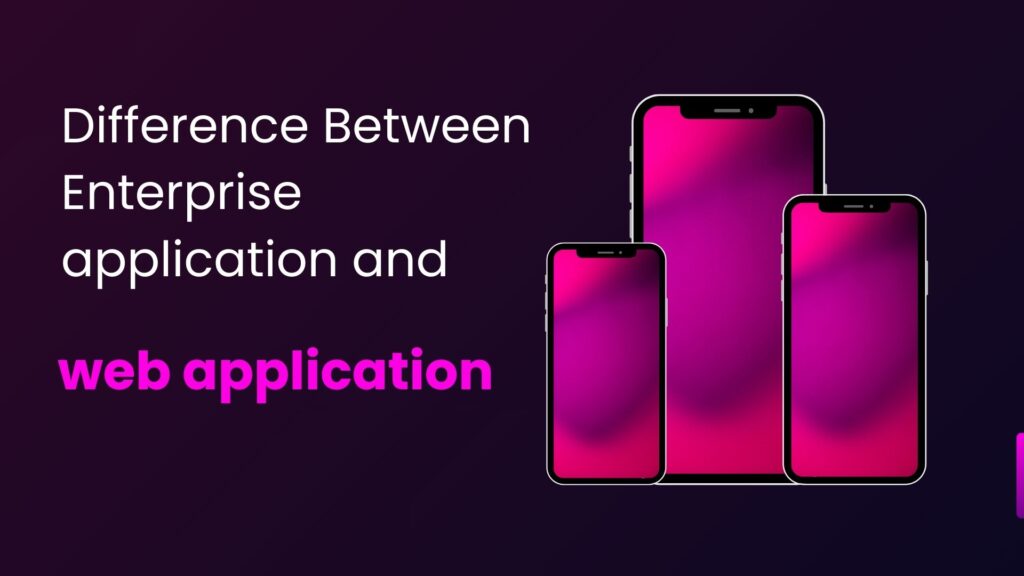The education industry has changed dramatically in the past decade, and technology has accelerated this change. Mobile application development has significantly impacted students’ lives, especially in how they learn and access information. This article will discuss the role of mobile application development in the education technology industry.
How Mobile App Development is Shaping the EdTech Industry

What is EdTech?
EdTech is the short form of Education Technology, and it is the process of adopting technology and implementing technology designs in education. It includes all online-based educational tools, including learning management systems, learning supporting software, virtual learning tools, and mobile applications.
The Growth of Mobile App Development in EdTech
In the educational field, applications developed and run on mobile phones are slowly but surely appearing more frequently. This analysis used data from App Annie indicating that the education apps category ranked third in the most downloaded apps in 2020. However, This rise can be due to many factors, including increased use of smartphones and tabs, increased internet usage, and especially with the help of online learning during the coronavirus disease outbreak.
Benefits of Mobile App Development in Education
Mobile app development has brought numerous benefits to the EdTech industry, including:
Accessibility: Students using mobile apps can study anytime and anywhere, which is convenient for them.
Personalized learning: Educational applications can effectively address student needs since they can be designed to match specified students’ requirements.
Interactive learning: To enhance students’ adventurous side, apps have features like games, quizzes, and other methods like simulations that capture their attention.
Real-time feedback: Mobile apps also have several advantages, such as allowing teachers to give feedback in real-time to the learners, making it easier for those learners to monitor their progress and effectively enhance their comprehension skills.
Collaboration and Communication: Mobile applications enhance interaction between different parties, such as students, teachers, and parents. Communication tools like message boards, forums, and group assignments help foster cooperative learning and ensure that concepts are shared among student comrades.
Resource Efficiency: Mobile apps are, therefore, cheaper relative to the cost of purchasing hard copy books and other educational materials, thus helping to cut the expenses incurred by schools or universities and lessen the environmental impact of manufacturing and distributing such materials.
Trackable Progress: Most learning applications include metrics to help instructors and learners monitor progress. This assists in locating gaps that require improvement and aligns the learning course appropriately.
Motivation and Engagement: Some educational apps incorporate game elements like badges, leaderboards, and reward systems, which help students stay focused on learning and comprehend more fully.
Inclusion and Accessibility: Mobile apps can be personalized to meet students’ learning disabilities and needs. Functions such as reading out loud, zooming, and adding subtitles assist in understanding content.
Use Cases of Mobile App Development in EdTech
It emerged that mobile application development has been practiced in different parts of the education sector.
Language Learning: Some examples of intelligent mobile apps for language learning are games, flashcards, and voice lessons.
Test Preparation: Some of the students’ most common forms of knowledge retrieval are using mobile applications to prepare for tests like the SAT or GRE. These applications include practice questions, study assistance, and even instant assessment.
Virtual Classrooms: In COVID-19, effectively delivering classes and lectures remotely has compelled using virtual classroom apps.
Challenges Faced by Mobile App Developers in EdTech
Like any industry involving advanced technology, people experience challenges when developing mobile applications in the EdTech field. Some common issues include:
Lack of funding: Designing and producing first-rate educational apps takes a lot of time and money. App creators often fail to find the necessary funding to produce their applications.
Limited reach: As the chapter shows, students own mobile devices that enhance their learning experience, but there is still a gap in technology. This can reduce the potential of educational apps, particularly in areas most affected by poverty.
Maintaining student engagement: It becomes difficult to manage the flow of students’ interest in a specific app from so many educational applications. Developers must remain active in designing new application forms and regularly making updates.
Conclusion
Thus, mobile app development has undoubtedly played a significant role in the evolution of the EdTech industry, and new ways of studying and interacting with educational content were introduced. The future of mobile applications in the education sector is set to be a lot more exciting due to the daily research and developments taking place in the technological industry. Thus, developers and educators must join hands and explore the maximum use of mobile apps in the education process of students. Mobile app development has created an array of opportunities in the education sector and will remain an area of significant importance. Therefore, it is time to embrace this new technological innovation and incorporate it in a manner that creates awareness and fosters change in generations to come.




